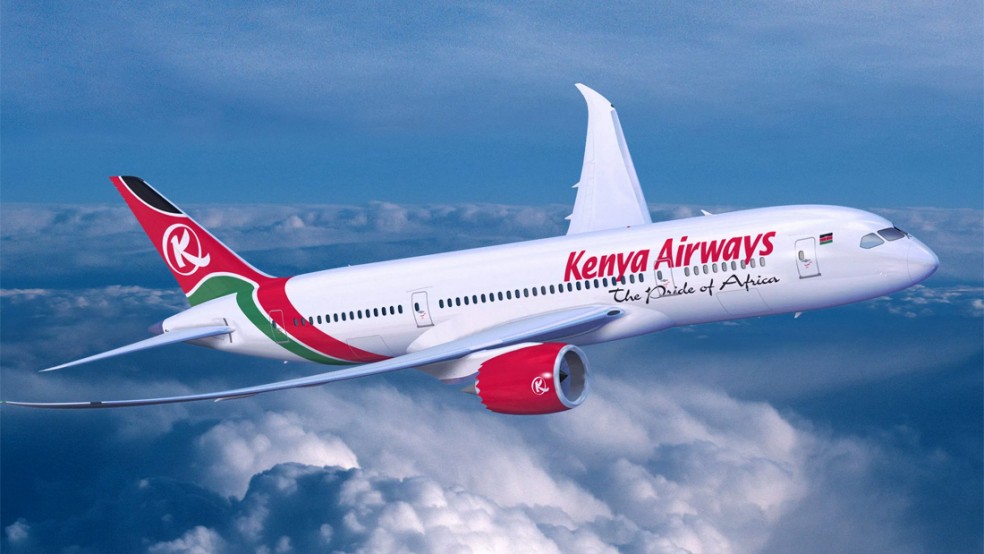Kenya Airways Bleeds Ahead of Nationalization

Kenya Airways continued its loss making ways in the first six months of the year ahead of its nationalization.
For the first six months, total income fell by 48 percent to Ksh30.2 billion compared to Ksh58.6 billion recorded in the six months to June in 2019. KQ Chairman Michael Joseph laments that operations were severely affected by the COVID19 crisis. In particular, travel restrictions and lockdowns reduced network activity connecting home market to key cities.
In the second quarter, the airline had to stop scheduled operations further bleeding the ailing carrier. The effect was evident in the 55.5 percent reduction in passenger numbers to 1.1 million in the period under review compared to 2.4 million in a similar period last year. Consequently, passenger revenues plunged 53 percent to Ksh20.2 billion.
The drop in revenue saw loss for the period rise from Ksh8.5 billion in H1:2019 to Ksh14.3 billion in the H1:2020. Total comprehensive loss for the period rose to Ksh21 billion driven by Ksh14.3 billion loss for the period, Ksh3.23 billion loss on hedged exchange differences borrowing, and Ksh3.5 billion changes in fair values relating to fuel hedges.
Kenya Airways CFO, Helen Mwariri, says that total costs fell to Ksh44.6 billion in the period under review compared to Ksh67.1 billion registered in half year 2019. Mwariri attributes the high costs in 2019 to high capacity that is the New York flights. Total operating costs declined 37 percent to Ksh38.6 billion in the period under review compared to Ksh61.5 billion last year.
The half year saw Kenya Airways assets decline to Ksh179.97 billion from the Ksh195.7 billion in a similar period last year.
Joseph adds that the airline resorted to cost saving measures and reduced activities for employees to preserve cash. Other initiatives include moratorium on loans, deferment of lease rentals, payment plans with suppliers, and partial deferment of staff salaries.
On a positive note, Kenya Airways operated a few charter flights, passenger repatriation flights, and continued with cargo operations. KQ operated 31 special charter flights helping evacuate and ferry 4,634 passengers.
Some passenger crafts were converted to move cargo mainly to Europe. KQ delivered 1200 tons of flowers to Europe and 2600 tons of foodstuffs to Europe and the Middle East. The airline moved personal protective equipment (PPE) and electronics from China into the country.
CEO Allan Kilavuka says that cargo has been critical to the airline during the half year and they are looking to expand it as a future revenue stream. However, he attributes the drop in cargo volumes to the drop in frequency of passenger flights.
Since reopening operations on August 1, KQ has 4 destinations in Europe and USA, 22 destinations on the intra-Africa route, and 4 destinations in the Middle East.
Joseph says that the nationalization bill is underway and will be fully debated towards the end of September. He adds that once the bill is approved it will await presidential gazettement which will pave way for the commencement of the nationalization process.

